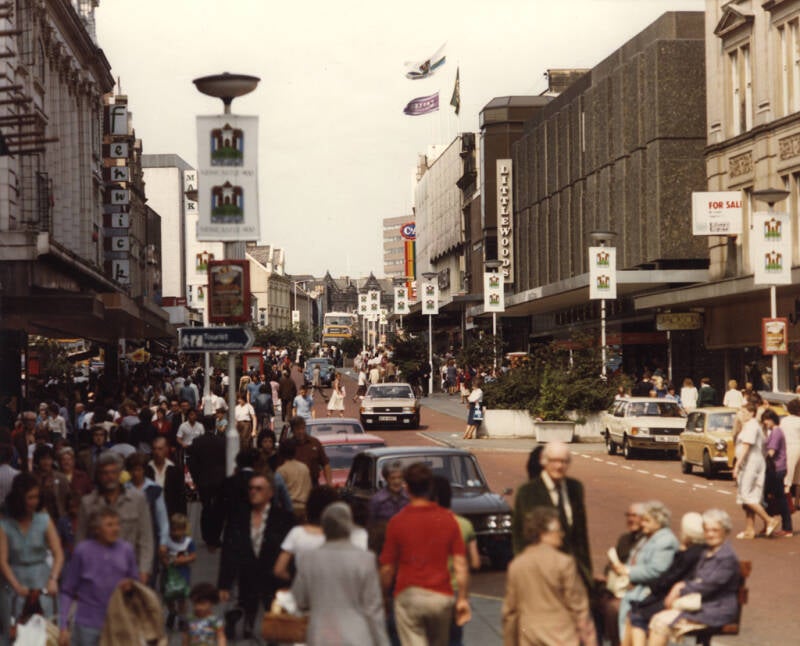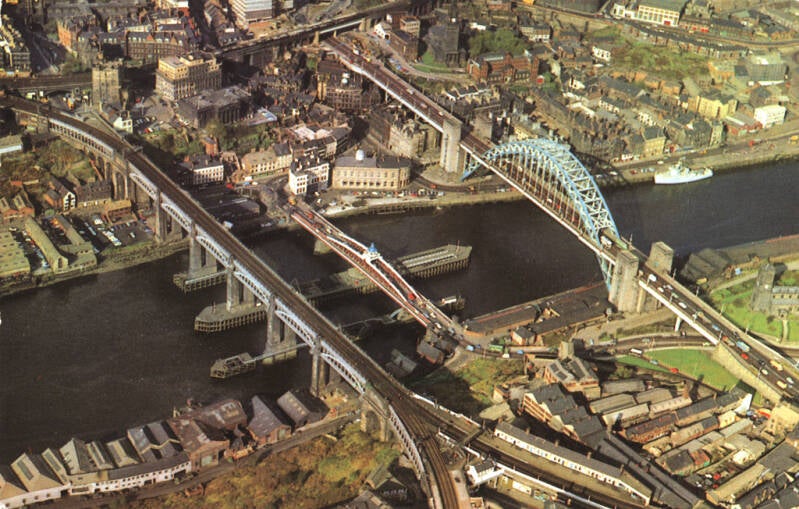The Irish formed a significant minority of the local population of Newcastle by the mid-nineteenth century, accounting for 8 percent of the local population by 1851. Although not as substantial as the Irish communities in Liverpool (22.3 percent) or Glasgow (18.2 percent), the Tyneside Irish played important roles in the local workforce. From the 1830s, for example, many Irish workers served as ‘navvies’ building the railways of the north-east. Irish labour also proved crucial in the building of the famous High Level Bridge connecting Newcastle and Gateshead. Early meetings of the Irish Home Rule Association were held in Newcastle in the 1870s, while the first ‘Irish club’ in the city was founded at Clayton Street in 1871.
Northumberland Street, Newcastle, 1980 (Newcastle Libraries/Flickr)
The Irish diaspora in Newcastle-upon-Tyne


The Newcastle Irish have a long history of engagement with municipal politics. In the 1870s, the Irish on Tyneside mostly supported the radical faction surrounding Joseph Cowen – a prominent Liberal who succeeded his father as Newcastle’s MP in 1874. In turn, Cowen advocated reform of land and church in Ireland. Cowen knew that the Irish immigrants’ backing would help the Liberals to maintain their fragile control of local politics. With a buoyant regional economy and relatively low immigration in general, a degree of class solidarity developed between Irish workers and their Geordie neighbours.
At the beginning of the First World War in 1914, young Irishmen responding to Lord Kitchener’s call for volunteers met at the Irish National Club in Clayton Street. Together they formed the Tyneside Irish Brigade. In total, more than 5,000 men served in the brigade. More than half of those were killed in action during the First World War, many at the Somme in July 1916. Through commemoration events and public debates, the Brigade has remained prominent among the motifs of the Irish on Tyneside.

Since the 1980s, the Tyneside Irish Centre on Gallowgate, near St James’ Park, has been an Irish community social hub as well as a thriving centre for music, sport, education, and political debate. In 1987, volunteers organised the city’s first Irish festival, instituting a tradition which continues to thrive. The Irish community in the north-east is the fourth most concentrated in England, behind only London, the north-west, and Yorkshire.
Leftists and trade unionists on Tyneside cooperated with Irish emigrants on a host of political issues pertaining to Britain’s role in Northern Ireland. For example, in the late 1980s, feminists, humanitarians, and trade unionists across the north-east campaigned around jail conditions for IRA prisoners held in Durham. Activists inside and outside the Irish diaspora jointly fulminated against strip-searching of republican women, and called for their repatriation.

Create Your Own Website With Webador